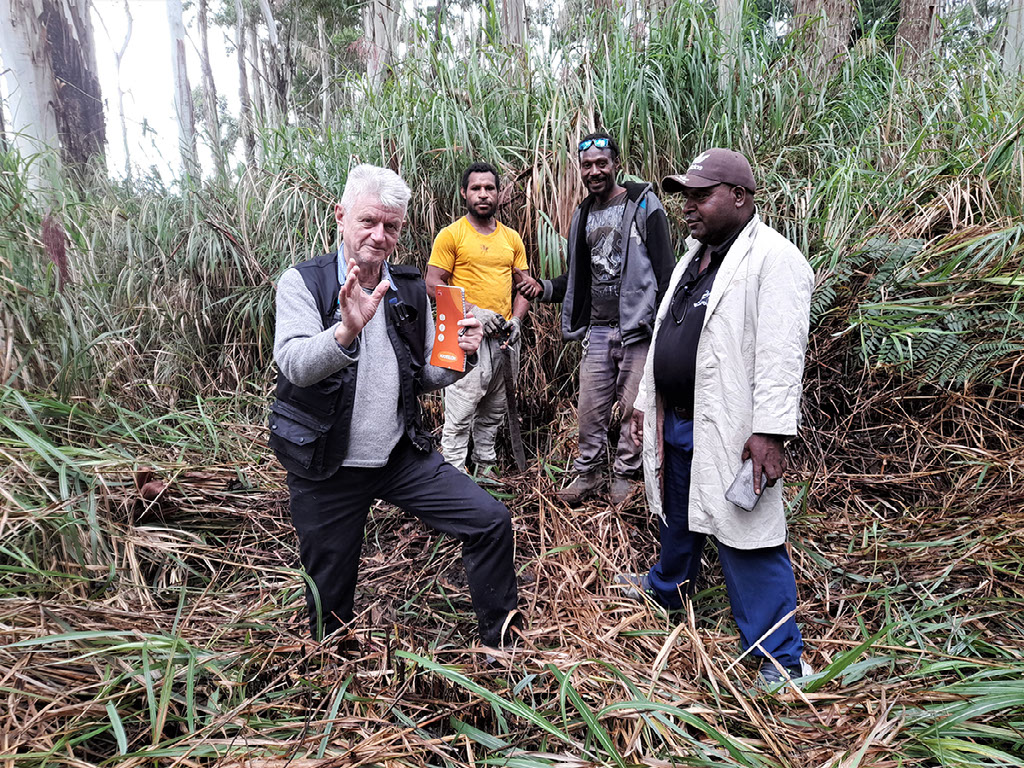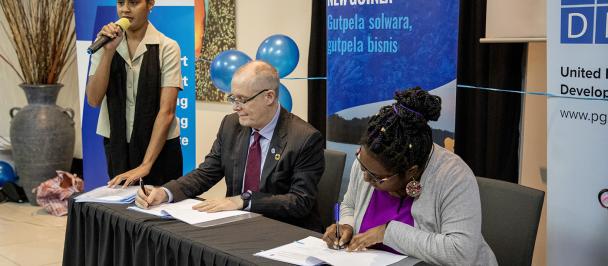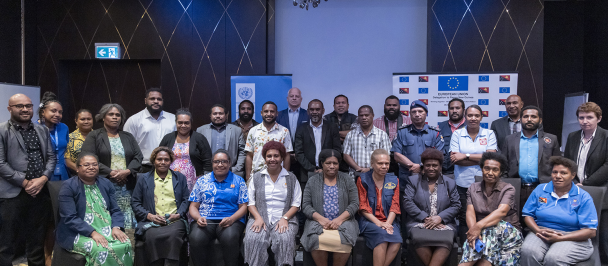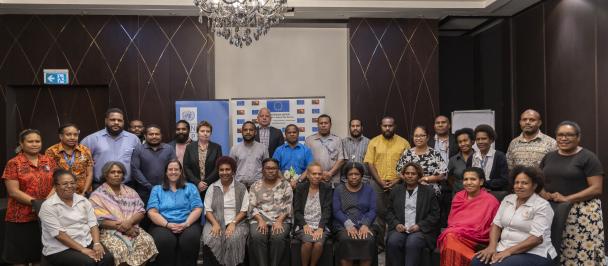Project advisor Anders Pedersen, with training participants in Enga.
Prone to climate extremes that affect food security, and further pressure on forests, UNDP is training agencies in conservation skills for sustainability in Enga Province.
More people live above 2,000 meters in Enga province than anywhere else in Papua New Guinea. Located in the Highlands region, the 295,000 inhabitants are prone to frost and disruptions of subsistence food supplies in one of the most densely populated areas in the country.
As part of the European Union-funded ‘Strengthening Integrated Sustainable Landscape Management’ (SISLaM) Project in Enga Province – led by UNDP, a recent capacity building training event on biodiversity and forestry management hosted over 20 technical staff from the Enga Provincial Administration including representatives from the civil society organisations, private sector, and other related agencies to improve skills on the sustainability of landscapes in Enga.
The upper valleys of Lagaip and Fly Rivers support very high populations, intensive agriculture, and continuous cultivation in some areas. However, Enga is a province with incomes that range between very low and moderate, earned from the sale of coffee, food and firewood.
Cultivated areas are very prone to drought, and other climate extremes, which can seriously affect food security with further pressure on forest ecosystems.
Enga Provincial Administrator, Dr Samson Amean said the training program will help increase skills and knowledge. “I would like to take this opportunity to thank the EU for funding, and making this project a reality, and UNDP for the implementation of the project, and especially to further working closely with, and supporting us.”
The United Nations Development Programme, is partnering with the Climate Change and Development Authority, Enga's Provincial Administration, and the European Union to deliver this important work.
This first set of training focused on biodiversity and forestry management, forest restoration, tree thinning, and tree seeds. Participants developed a common understanding on how to integrate a sustainable landscape approach in Enga Province based on national and international best practices to identify root causes of problems impacting food security and conservation, and the developing approaches to mitigate them.
UNDP's Chief Technical Adviser, Mr. Ahmad Jamshed Khoshbeen, said the training is one of many activities providing direct services to beneficiaries. “We hope the project will help not only local governments but many other stakeholders, including local communities, academia, researchers and others. The training included a practical field session on forestry management techniques that are crucial in Enga Province for reforestation and the prevention of deforestation.”
Participants gained knowledge and skills to support and enhance biodiversity and forest conservation efforts. They are now contributing to, and creating partnerships at the core of community outreach.
Two further training events are scheduled on sustainable agricultural practices and food security, and climate change adaptation and mitigation, in the second quarter of 2022. The training events will also include transferring knowledge on international best practices on forestry (REDD+ related issues), and community conservation areas.

 Locations
Locations



